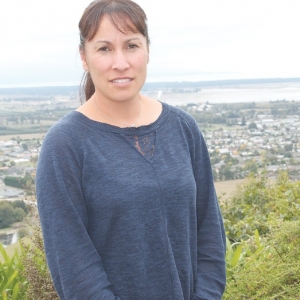Maersk late last year announced a blanket US$1500/container price increase and other shipping companies followed, she says. It isn’t that much but is still unaffordable in the present environment, she says.
“A lot of the primary industries have always worked in silos in their own space. Maybe it is time they started working more together to smooth out the peaks and troughs for shipping companies,” Tunley told Rural News.
“Perhaps we need to see it as our issue also, and figure out with the other industries what we can all do together to make it more viable for everyone else. That doesn’t happen overnight; it takes time to get these groups together and get people talking.”
Getting people talking and working together has been a big aim since Tunley was voted Pipfruit New Zealand chairman in August last year.
Operating to achieve economies of scale and efficiencies in a deregulated environment is one the biggest issues the pipfruit industry faces, she says.
Prior to deregulation in 2001 Enza was the single desk exporter; now there are 391 growers about 80 exporters.
“That’s not ideal but the volume does sit in the top 1 to 20 exporters so ideally you would have just that number – but that’s deregulation,” she says. But alternatively growers now have greater choice in who to supply.
Market access is another major issue for pipfruit. Although the media constantly asks about Australia “there are so many other markets either equally or more important than Australia” including China, India and South Korea which “has just started to talk.”
The traditional markets of Europe and UK were superseded last year and this year by Asia. “You don’t just stick a tree in the ground and have fruit. It’s a long process of five years for full production. When people realised UK and Europe may not be the future there was a time lag. The Asian based varieties are now producing and we can target those markets.”
Pipfruit NZ is keen to get China access sorted, with problems of pests and disease. For India there is no free trade agreement so they are working with the Government. “As an industry we would like to see that progress quicker but the wheels of progress take time when it comes to the government situation,”
They are also keen to move into Korea.
Hawke’s Bay produces 60% of the pipfruit crop, Nelson 30%, Central Otago and the rest of the country the other 10%. The Pacific varieties which are Asian suited do not grow well in Nelson so UK and Europe remain the dominant markets. Hawke’s Bay is a strong Pacific region with varieties like Royal Gala and traditionally two-three weeks earlier than Nelson.

















